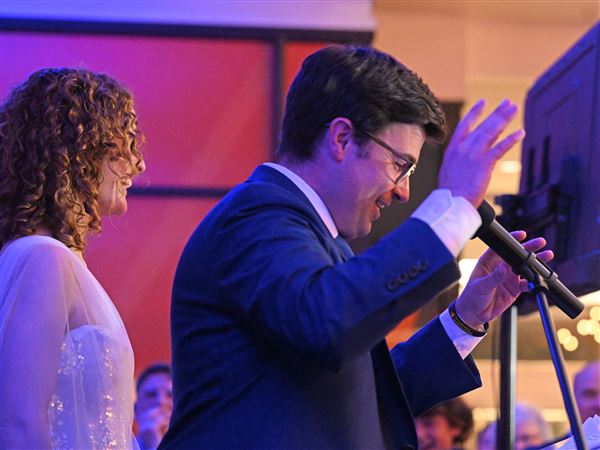JERUSALEM -- Israel's prime minister, Benjamin Netanyahu, moved quickly to block even tentative steps by Iran and the United States to ease tensions and move toward negotiations to end the nuclear crisis, signaling what is likely to be a sustained campaign by Israel to head off any deal.
Mr. Netanyahu's office dismissed as "media spin" a flurry of statements by Iran's new president, Hasan Rouhani, about the goals of his nation's nuclear program and his willingness to engage in diplomacy regarding it. His remarks were made amid news that President Barack Obama had reached out to Mr. Rouhani with a private letter, and renewed discussion in Washington of negotiations that could lift sanctions against Iran.
"There is no need to be fooled by the words," said a lengthy statement issued late Thursday in response to Mr. Rouhani's interview this week with NBC News. "The test is not in what Rouhani says, but in the deeds of the Iranian regime, which continues to advance its nuclear program with vigor while Rouhani is being interviewed."
Mr. Netanyahu, who has described Mr. Rouhani as a "wolf in sheep's clothing," has stepped up his long-standing campaign against Iranian nuclear development in recent days, and plans to make it the focus of his Sept. 30 meeting with Mr. Obama in Washington and his upcoming speech to the U.N. General Assembly.
The U.S. and Israel share the goal of preventing Iran from obtaining a nuclear weapon but have often disagreed on the timetable and strategy for doing so. Israel, which sees an Iranian bomb as a threat to its existence, has pressed for a more forceful and immediate military threat. The U.S., while stressing that all options are on the table, has urged Israel to hold its fire and give diplomacy and sanctions more time.
Tehran maintains that its nuclear development is for civilian purposes.
"It's certainly different perspectives looking at the same picture," said Dore Gold, president of the Jerusalem Center for Public Affairs and a former Netanyahu aide. "Israel is clearly focused on Iranian action, and the messages in Washington seem more hopeful about Iranian intentions."
Since Mr. Netanyahu's U.N. speech last year laying out his red lines on Iran, and especially since Mr. Obama's visit to Israel in March, the two countries have seemed more in sync. But many Israeli leaders and analysts saw Mr. Obama's handling of the Syrian chemical weapons situation over the last month as a bad omen for his resolve in stopping Iran.
"Netanyahu's words were most likely meant for the ears of the members of Congress, so they will not let Obama get carried away by Rouhani's overtures," Ron Ben-Yishai, a respected journalist, wrote in an analysis published on Ynet, an Israeli news site. "The Israelis are also telling their American counterparts that just like in the case of the Syrian crisis, a credible military threat is needed in order to get results on the diplomatic track."
Yuval Steinitz, Israel's minister for strategic affairs, said in an interview published Friday that the Iranians were six months away from developing a bomb, and that "there is no more time to hold negotiations." He told the right-leaning newspaper Israel Today that Washington's "all options on the table" catchphrase had not been enough.
"Today the Iranians take into account that they have room to maneuver, and that is the most dangerous thing," Mr. Steinitz said. "It must be understood that no one will come to help us if, heaven forfend, we lose the ability to defend ourselves."
First Published: September 21, 2013, 4:00 a.m.















